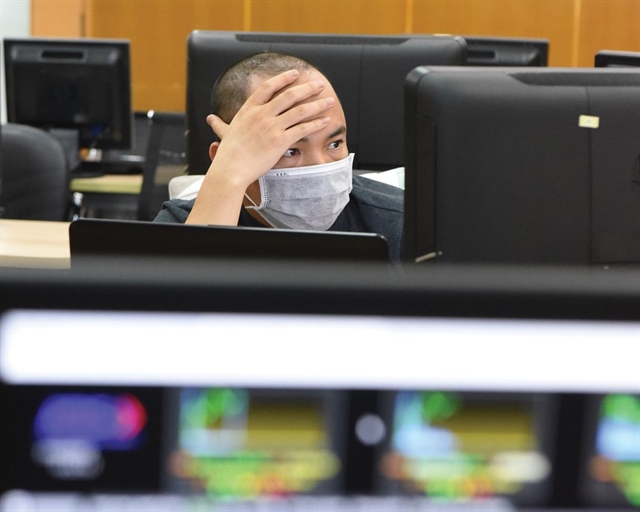
HÀ NỘI — Trương Quỳnh Mai was terrified when she received a phone call saying she had been a victim of fraud in Hà Nội and needed to go to the local police station.
Mai gave her personal details to the caller on the other end of the line, but luckily, Mai stopped when she was asked for her credit card details.
“At that moment,” Mai told Việt Nam News, “I suddenly knew it was a trick and did not worry anymore about the threat. Money is important to me, so I didn’t dare share my credit card number.”
Not all people who are trapped by similar tricks recognise it as quickly as Mai. They are not only giving personal information, bank account details and credit card numbers, but also sending money to strangers.
Most importantly, fraudsters get a lot of phone numbers and, according to cyber security experts, the numbers could have been leaked by their own users when they use social networks such as Facebook or Instagram, or when they book flights.
Nguyễn Minh Đức, CEO of CyRadar Information Security Joint Stock Company, said: “Most social network users in Viet Nam leak the information themselves. They also post lots of updates of many activities of their day online, which makes it easy for hackers to track them.”
Đức said: "The longer you use social media, a clearer picture of you will be automatically collected with current technology, especially big data.”
Besides users, service providers add to the leaks, said the experts.
When registering for a service, most customers have to give at least their name and phone number; more must give email, ID number, permanent address. Service providers are always committed to protecting customer data at the highest level.
However, there are many cases of information disclosure from the providers.
Phan Mỹ Hòa in Hà Nội said: "One time I bought a plane ticket to Huế via a travel agent, then I was called and received a lot of text messages from taxies and restaurants in the city.”
Hòa thought the agent has leaked her information to other firms, saying: “I will never book there again.”
Most recently, customer details and credit card information on hotel booking site Booking.com was leaked. Also, sometimes electronic wallet transactions and online intermediaries have encountered similar situations.
In addition to having businesses intentionally give customer information to third parties, businesses also encounter hacks.
According to Ngô Tuấn Anh, Bkav's vice president of cybersecurity, hackers focused on stealing information from big providers.
Thus, experts told internet users to limit sharing their personal information online.
They said people need to avoid using social networking accounts to connect to third-party applications.
Nguyễn Trọng Dương, director of the Vietnam Computer Emergency Response Team, Ministry of Information and Communications, said to the People's Police Newspaper: “People need to use copyrighted software and applications from official sources,” suggesting not to access unknown websites, links in emails or on Facebook to getting viruses and being targeted by hackers.
Experts also recommend using a phone number to have a two-factor authentication.
They also advised users to change the password of accounts regularly and not to use the personal information such as date of birth or full name to create a password.
They also urged: “Do not use the same password for multiple accounts.”
The experts asked users to immediately change the passwords of important accounts if they found something wrong with their information.
But most of the experts said the most important thing is to have a sense of protection of personal information when online. — VNS































